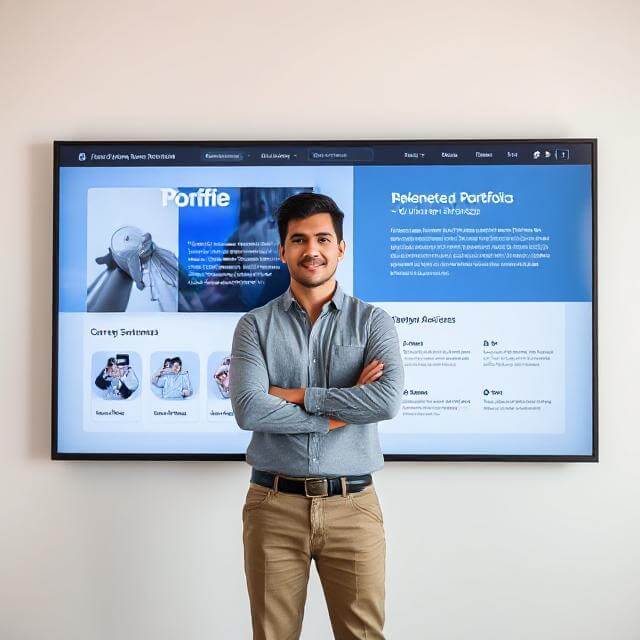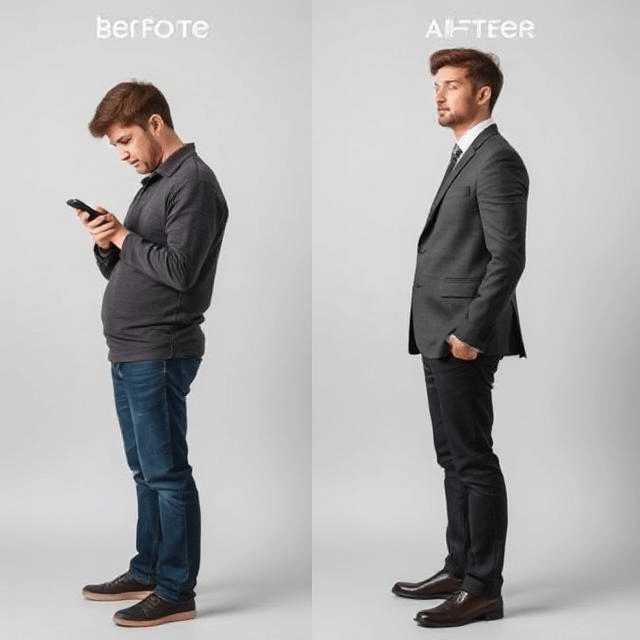The Importance of Personal Branding: How It Shapes Your Identity and Success
In today’s digital age, where personal identity is closely tied to online presence, personal branding is crucial for both professionals and entrepreneurs. Whether you’re just starting your career, building a business, or looking to enhance your online presence, creating a strong personal brand can dramatically elevate your reputation, credibility, and overall success. Personal branding isn’t just about what you do; it’s about how others perceive you. This article will explore the importance of personal branding, why it matters, and how you can build a personal brand that resonates with your audience.
What Is Personal Branding?
Personal branding is the process of creating and promoting your own image or identity in the public sphere. It’s the way you present yourself online and offline to communicate your values, skills, and personality. Your personal brand reflects your professional expertise, interests, beliefs, and overall reputation.
When done correctly, personal branding allows you to differentiate yourself from others, making it easier for potential employers, clients, or collaborators to identify what you bring to the table. It’s an ongoing process that requires careful thought, consistency, and a clear message that you want to share with the world.
Why Is Personal Branding Important?
1. Increased Visibility and Recognition
In a world where millions of professionals and brands are vying for attention online, visibility is key. A strong personal brand increases your online presence and ensures that your work is seen by the right people. This helps you stand out in your industry and positions you as an expert in your field. Whether through social media, blogs, or personal websites, your brand acts as a beacon that draws attention to your expertise.
2. Build Trust and Credibility
A strong personal brand is synonymous with trust and credibility. By consistently sharing valuable insights and authentic content, you can build a reputation for reliability. This trust is essential for building lasting relationships with your audience, whether you’re trying to gain a new job, land clients, or grow your business. When people know they can trust you, they are more likely to engage with your work and recommend you to others.
3. Career Advancement and Opportunities
A well-crafted personal brand can help you advance in your career by making you more appealing to potential employers or business partners. Whether you’re a professional looking for new job opportunities or an entrepreneur trying to build partnerships, a solid personal brand can give you the edge you need. It helps potential employers or clients understand who you are and why they should choose you.
Additionally, having a personal brand gives you control over your career narrative. It allows you to showcase your unique skills, accomplishments, and values, creating opportunities that align with your professional goals.
4. Networking and Relationship Building
Networking is a cornerstone of career growth, and personal branding plays a critical role in this. When you have a strong personal brand, people can quickly understand what you’re about. They are more likely to approach you with opportunities or business proposals. Your brand serves as an introduction, creating a space where people can connect with you based on shared values, expertise, or interests.
Whether you’re attending events, engaging with colleagues, or joining online communities, your personal brand allows you to establish relationships that are built on mutual respect and shared goals.
5. Increased Control Over Your Narrative
Personal branding gives you the ability to control your narrative. Instead of leaving your reputation up to chance, you can intentionally shape how you are perceived by the world. Through the right messaging and content, you control how your audience sees you—whether as a leader, expert, or influencer. This level of control helps mitigate any misunderstandings and allows you to focus on your strengths and areas of expertise.
6. Differentiation in a Crowded Market
In highly competitive industries, standing out can be challenging. Personal branding helps you differentiate yourself from others by showcasing what makes you unique. By focusing on your strengths, experiences, and values, you create a brand that is distinctly yours. When your personal brand resonates with your target audience, you increase your chances of being remembered and chosen over competitors.
7. Boosts Your Influence and Impact
When you build a personal brand, you increase your ability to influence others. Whether you’re sharing knowledge, making decisions, or offering advice, your brand positions you as an authority in your field. This influence not only impacts your career or business, but it also allows you to make a greater impact on your audience. By continuously providing value and insight, your influence and reach grow.
8. Self-Awareness and Personal Growth
Creating and maintaining a personal brand encourages self-awareness. It forces you to reflect on your skills, values, goals, and passions, which can lead to personal growth. The process of defining and evolving your brand helps you better understand your purpose and what you want to achieve. This journey of growth strengthens your commitment to success and keeps you focused on your long-term goals.
How to Build a Strong Personal Brand
1. Define Your Brand Values and Goals
Start by understanding what you stand for. What are your core values? What are you passionate about? What do you want to be known for? These questions form the foundation of your personal brand. Once you’ve identified your values, set clear goals for your personal brand. Do you want to position yourself as an expert? Are you looking to create more business opportunities? Having clear objectives will help guide your branding efforts.
2. Create and Share Consistent Content
Content is the heart of personal branding. It helps you share your message with the world and showcase your expertise. Whether it’s blog posts, videos, podcasts, or social media updates, ensure that your content is consistent and aligns with your brand’s core values. Quality content will attract your target audience and keep them engaged.

3. Be Authentic and Transparent
Authenticity is the cornerstone of personal branding. People connect with individuals who are real and transparent. Don’t try to be someone you’re not. Share your genuine experiences, stories, and insights. Be open about your successes and failures—it makes you relatable and helps others connect with you on a deeper level.
4. Leverage Social Media Platforms
Social media is one of the most powerful tools for building and promoting your personal brand. Platforms like LinkedIn, Instagram, and Twitter allow you to connect with a wide audience and share your content. Tailor your approach to each platform—what works on Instagram might not be the best fit for LinkedIn. Be active on social media, engage with your followers, and build a community around your brand.
5. Engage with Your Audience
Building a personal brand is not just about broadcasting your message. It’s also about engaging with your audience. Respond to comments, messages, and feedback. This engagement helps build trust and creates a sense of community. By nurturing relationships with your followers, you increase the likelihood that they’ll become loyal supporters of your brand.
6. Be Consistent Across All Channels
Consistency is key to a successful personal brand. Whether it’s your tone of voice, visual style, or messaging, ensure that everything aligns across all platforms. Your audience should be able to recognize your brand no matter where they encounter you—whether it’s on social media, your blog, or in person.
Conclusion
Personal branding is no longer just a buzzword—it’s an essential part of career and personal success. By building a strong personal brand, you gain visibility, increase your credibility, and create opportunities for growth. With a well-defined personal brand, you differentiate yourself from competitors, foster meaningful relationships, and increase your influence in your industry.
Remember, personal branding is a journey that requires authenticity, consistency, and ongoing effort. Start by defining your values and goals, and then use content, social media, and engagement to share your story with the world. With time, patience, and dedication, your personal brand will become a powerful tool that helps you achieve your professional and personal goals.





